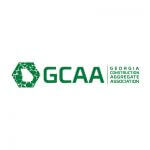
Below is a roundup of key stories in digital and public affairs for this week:
Content, Digital and Social Media
In an effort to give advertisers more control over their video ad buys, Facebook is allowing the media industry’s independent measurement monitor, Media Rating Council (MRC) to audit the measurements it provides advertisers. Facebook will sell video ads based on the MRC’s viewability standard, allow more granularity in performance measurement and introduce an option for paying for ads only when users watch the video with the sound on.
With the release of Chrome 56, Google has started tagging http payment and login pages as “not secure”. HTTP Pages that collect login details or credit card numbers will be marked as non-secure pages, and the warning will eventually be used for all http pages. With over 1 billion users of Chrome, Google’s efforts will pressure website operators to at least consider enabling site-wide HTTPS.
Gov 2.0 and Public Affairs
On Hootsuite’s blog, Jylian Russell offers the benefits that social media in government can achieve such as its role in raising awareness, citizen engagement and crisis communications. Russell also weighs some of the challenges of using social media in government and offers some solutions for mitigating those risks.
CNN reports on the decision by the White House to expand its social media team with several new hires to assist current White House social media director Dan Scavino. Since the Inaguration, President Trump and Scavino have primarily handled social media communications, posting on President Trump’s personal and official White House social media accounts on Twitter and Facebook.
In Associations Now, social media journalist Ernie Smith offers suggestions to associations for improving their email marketing in 2017. Smith recommends new tools for consideration for sending emails on the cheap, making design less painful, and acquiring better data.
Campaigns and Elections
In Politico Magazine, Democratic direct mail consultant Dave Gold laments how data driven campaigns by Democrats have resulted in 4 straight election cycle losses for his party. Gold argues that Democrats should pay less attention to quantitative political science and focus more on creating message driven campaigns that utilize storytelling that connects with voters’ emotions.
These are some of the reads that matter to us for the week in digital and public affairs. Want to get in depth analysis, news, and how to tips in digital and public affairs? Subscribe to our monthly newsletter here.
